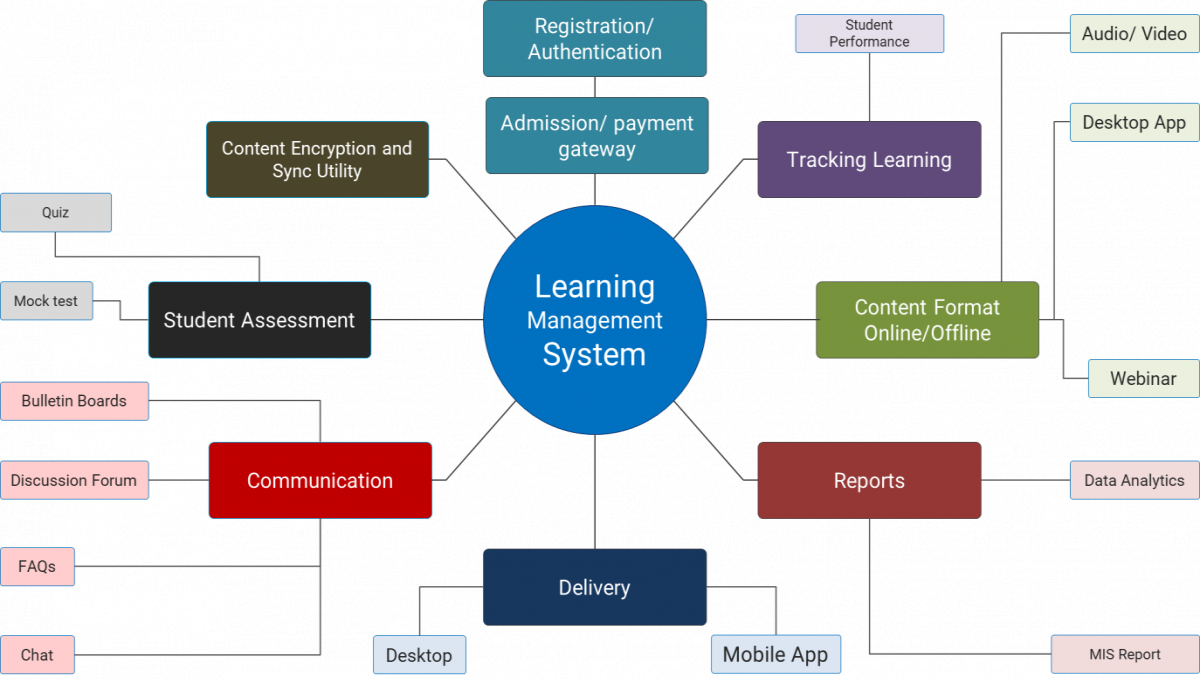Canvas SG: Bringing Dynamic Learning to the Singapore Education Landscape
Wiki Article
The Ultimate Guide to Choosing the Right Learning Management System
Picking a suitable Learning Monitoring System (LMS) is an essential decision that can dramatically affect educational efficiency and total organizational objectives. The nuances of these factors to consider raise vital concerns that merit exploration, particularly as the landscape of digital learning proceeds to evolve.Recognizing Knowing Monitoring Systems
In the context of modern-day education and training, a Discovering Management System (LMS) offers as a crucial device for delivering, tracking, and taking care of training web content. An LMS facilitates the company of instructional resources, making it possible for institutions and organizations to develop a central hub for discovering products. This system supports various discovering methods, including on the internet training courses, combined learning, and standard class setups.LMS platforms are developed to boost the learning experience by offering a structured atmosphere where students can access web content at their convenience. They typically consist of attributes such as assessments, progress tracking, and reporting tools, which assist teachers check pupil efficiency and involvement. Additionally, LMSs can be customized to satisfy the particular requirements of various learners and organizations, permitting tailored academic experiences.
The combination of an LMS right into academic setups likewise promotes partnership among learners and instructors, fostering a sense of community through conversation online forums and team tasks. As companies significantly identify the value of continual understanding and growth, the function of LMSs in assisting in efficient training services continues to grow, positioning them as indispensable properties in the instructional landscape.
Secret Functions to Consider
When selecting an Understanding Monitoring System (LMS), numerous vital attributes call for mindful consideration to ensure the platform aligns with instructional purposes. Most importantly, user-friendliness is vital; a straightforward user interface assists in simplicity of navigation for both students and administrators.
Combination with existing tools is one more substantial element; the LMS should effortlessly get in touch with tools like CRM systems, video clip conferencing platforms, and web content repositories. canvas singapore. Mobile compatibility is progressively important, as learners usually choose accessibility to resources on-the-go
Moreover, modification choices permit institutions to tailor the LMS to their details branding and pedagogical requirements. Last but not least, consider the platform's scalability, guaranteeing it can suit future growth and modifications in customer need. Focusing on these key features will assist in picking an LMS that effectively enhances the discovering experience and satisfies institutional go now objectives.
Rates Versions and Budgeting
Budgeting for a Learning Administration System (LMS) needs a detailed understanding of numerous pricing models to ensure a sustainable investment. Organizations should examine their certain demands and lasting objectives while taking into consideration the economic effects of each LMS alternative.
In enhancement to the base rates, companies must likewise think about prospective additional costs such as execution, upkeep, and support services. It is essential to assess the complete price of ownership over the LMS's lifecycle, including potential upgrades or added functions that may be necessary as the company grows. By thoroughly analyzing these rates designs and connected costs, companies can make educated decisions that align with their financial restrictions and educational purposes.
Examining Individual Experience
Assessing the performance of a Knowing Management System (LMS) exceeds financial factors to consider; individual experience plays a pivotal function in the overall success of the system. A well-designed interface can considerably enhance interaction and retention, making it vital to review exactly how instinctive the system is for both administrators and students.When evaluating customer experience, consider navigational simplicity, accessibility functions, and the responsiveness of the platform across numerous devices. An LMS must provide a seamless experience, permitting users to swiftly situate resources, track development, and involve with content without unneeded rubbing.
Additionally, gather responses from real users to assess satisfaction levels and determine possible pain points. Focus teams or studies can offer important understandings right into just how learners communicate with the system and any type of obstacles they face.
It's also important to check out the degree of customization offered within the LMS. A versatile system that permits companies to customize the interface and features to their specific needs can substantially enhance customer involvement. Inevitably, a favorable customer experience cultivates a learning environment that encourages participation and helps with knowledge retention, making it an essential aspect in the choice of an LMS.
Application and Support Choices
Efficiently rolling out a Discovering Management System (LMS) calls for cautious consideration of both implementation approaches and continuous support alternatives. Organizations ought to assess whether they will handle the implementation in-house or team up with the LMS supplier.Ongoing assistance is similarly vital to make sure the LMS stays reliable and easy to use - canvas singapore. Organizations ought to assess the see it here kinds of assistance offered by the supplier, including technological assistance, individual training, and normal updates. A robust assistance system can help solve issues swiftly, thereby improving customer complete satisfaction and involvement
Additionally, think about the schedule of sources such as user handbooks, Frequently asked questions, and online forums. These can encourage customers to troubleshoot their very own problems and cultivate a sense of community. Eventually, the appropriate implementation and support choices will certainly not just facilitate a smoother transition to the LMS however additionally add to its long-term success within the organization.
Final Thought
Check Out Your URL Finally, picking an appropriate Knowing Administration System (LMS) requires cautious factor to consider of numerous essential factors, including essential features, prices designs, individual experience, and application methods. An appropriate LMS not only improves academic results however likewise promotes partnership among individuals and integrates perfectly with existing tools. canvas singapore. Ultimately, a comprehensive assessment of these elements will sustain companies in attaining their academic goals and guaranteeing a successful learning setting for all stakeholders entailedReport this wiki page